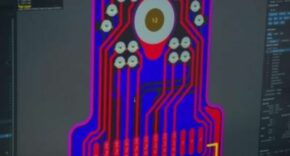
Digital health technology is revolutionizing the healthcare industry and its effects are increasingly felt in nursing education. With advancements in technology, nursing degree programs are evolving to integrate these new tools and methodologies. This article explores how digital health technology is impacting nursing education and what it means for future nurses.
In today’s swiftly advancing healthcare landscape, digital health technology is transforming how nurses are educated. As a student or professional interested in the field, understanding these changes can help you stay ahead of the curve. This article delves into the various ways digital health technology is reshaping nursing degree programs and why this is significant for the future of healthcare.
Adapting Curriculum to Digital Innovations
Nursing degree programs are increasingly incorporating digital health technologies into their curricula. This adaptation ensures that students are well-versed in the latest tools and practices they will encounter in clinical settings. For instance, virtual simulations and augmented reality are being used to create realistic patient care scenarios, providing students with hands-on experience without the risks associated with real-life practice. In addition, electronic health records (EHR) training is now a fundamental part of many nursing programs, preparing students for a seamless transition into modern healthcare environments.
What’s more, PhD nursing programs online are also embracing these technological advancements, allowing students to engage with cutting-edge research and innovative practices from anywhere in the world. This flexibility not only broadens access to advanced education but also enables nurses to balance their studies with professional commitments. By staying updated with digital innovations, nursing programs ensure that graduates are equipped with the skills needed to thrive in an increasingly tech-driven industry.
The integration of digital health technology into nursing curricula also extends beyond the classroom. Many programs now offer online resources and platforms that allow students to collaborate, share knowledge and engage in discussions with peers and faculty members. This fosters a sense of community and encourages the exchange of ideas, even when students are not physically present on campus. By leveraging these digital tools, nursing education is becoming more accessible, flexible and inclusive, enabling a diverse range of individuals to pursue their passion for healthcare.
Enhancing Learning through Digital Tools
One of the most significant impacts of digital health technology on nursing education is the enhancement of learning experiences through various digital tools. For example, interactive modules and e-learning platforms provide students with a more engaging and effective way to absorb complex information. These tools often include multimedia elements such as videos, quizzes and interactive case studies that cater to different learning styles. Telehealth simulations also offer students the opportunity to practice remote patient consultations, a skill that is becoming increasingly important in today’s healthcare landscape.
This approach not only makes learning more dynamic but also helps students develop essential competencies that will be crucial in their future careers. In addition to improving knowledge retention, digital tools facilitate continuous learning by providing instant access to up-to-date resources and research findings. This ensures that nursing students remain informed about the latest developments in healthcare, which is vital for delivering high-quality patient care.
Preparing for a Tech-Driven Future
As healthcare becomes more reliant on technology, it’s crucial for nursing degree programs to prepare students for a technology-centric future. This involves not only teaching technical skills but also fostering critical thinking and adaptability. Nurses must be able to navigate complex digital systems and make informed decisions based on data analytics and artificial intelligence insights. By integrating these elements into their curricula, nursing programs help students develop a comprehensive skill set that will be indispensable in the coming years.
Exposure to digital health technologies during their education also allows nursing students to become comfortable with these tools early on. This familiarity can lead to increased confidence and competence when they enter the workforce, ultimately contributing to better patient outcomes. As technology continues to evolve, so too must the training provided by nursing degree programs to ensure that graduates are ready to meet the demands of modern healthcare environments.
The Broader Implications for Healthcare
The integration of digital health technology into nursing degree programs has far-reaching implications for the entire healthcare sector. By producing tech-savvy nurses who are adept at using modern tools and techniques, educational institutions play a critical role in driving innovation within the industry. These graduates can contribute to more efficient workflows, improved patient care and enhanced data management practices, all of which are essential for addressing current and future healthcare challenges.
What’s more, this shift towards technologically advanced education can help bridge the gap between traditional practices and emerging trends in healthcare delivery. As new technologies continue to emerge, having a workforce that is well-versed in these innovations will be crucial for ensuring that they are effectively implemented and utilized. Ultimately, the impact of digital health technology on nursing degree programs represents a significant step forward in preparing healthcare professionals for a rapidly changing world.
Summing Up
The healthcare industry continues to be transformed as digital technology advances and develops education and methodologies in medicine. Not only is the technology enhancing how nurses learn but it is also revolutionizing how patients are being treated, improving care and efficiency.












